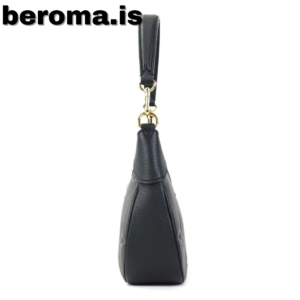The allure of luxury fashion is undeniable, with its opulent aesthetics and the promise of exclusivity. However, as the luxury industry booms, so too does an underground market—super fake luxury bags. These sophisticated imitations have become a hot topic of conversation among fashionistas, luxury shoppers, and ethical consumers. In this extensive exploration, we will dissect the nuances of the counterfeit industry and shed light on the ethical considerations for consumers. We’ll also provide guidance on differentiating the real deal from its glamorous yet unscrupulous doppelgangers.
Faux models of high-end bags are often crafted with such precision that even the most discerning eye may find it challenging to separate them from the genuine articles. The phenomenon raises crucial questions about the social, economic, and legal implications of these imitations, as well as the impact on the luxury brands they imitate.
The Siren Call of Super Fakes
For some, the desire to own an iconic designer bag is overpowering, driven by the wish to align with the image, status, and social cache that luxury items represent. However, the price tag of these symbols of affluence often surpasses the means of many admirers. This is where super fake luxury bags enter the picture, offering an affordable route to ‘own’ a piece of the luxury world.
Online marketplaces swarmed with merchants advertising bags that bear indistinguishable logos, designs, and sometimes, quality, from their authentic counterparts. The affordability of these replicas, along with the inability of the average buyer to spot the differences, has led to a brisk market for the counterfeit goods.
Yet, beneath the surface, the allure of the super fake is marred by ethical concerns and legal ramifications, as the purchase may inadvertently support an industry linked to human trafficking, child labor, and organized crime.
The Luxury Industry’s Stance
Luxury brands have long been fighting a battle against counterfeits, which they view as direct threats to their intellectual property, brand integrity, and revenues. The creation and sale of fake luxury bags are a multi-billion-dollar industry, and for every sale of a counterfeit, it’s estimated that luxury brands lose out on revenue.
To combat this, luxury brands invest heavily in anti-counterfeiting measures, ranging from advanced packaging and security tags to blockchain technology to trace the provenance of products. But despite these efforts, the counterfeit industry persists, adjusting its methods to evade detection.
The Ethical Dilemma for Consumers
For the consumer, the decision to buy a super fake luxury bag is complex. While the allure of luxury can be irresistible, the purchase of a counterfeit item comes with a myriad of ethical considerations. The origins and means of production of these goods are often murky, with reports linking counterfeit production to exploitative labor practices and funding of criminal operations.
Consumers also run the risk of being duped into spending a significant amount on a well-crafted, yet ultimately fraudulent, product. The ethics of supporting the counterfeit market, which often operates outside the bounds of intellectual property laws, is a significant issue for those committed to ethical consumerism.
Spotting the Difference: Identifying Authentic Luxury Bags
Discerning buyers who wish to sidestep counterfeit products must be well-versed in the tell-tale signs of authenticity. Materials, craftsmanship, and even the feel of the bag can provide clues to its legitimacy.
One key indicator is the quality of the leather. Luxury brands use the finest, most supple materials, which are often difficult to replicate. Additionally, the stitching on genuine bags is precise and consistent, a feature often overlooked by counterfeiters. Finally, the detailing on the hardware and the way the logos are placed are usually dead giveaways.
Legal Terrain and Why It Matters
Beyond questions of ethics and production quality, the legal implications for those involved in the counterfeit market are dire. Both the production and sale of counterfeit goods are illegal and can result in hefty fines and even incarceration. For consumers, owning a counterfeit item could pose legal risks, depending on local laws.
Understanding the legal boundaries and the potential consequences is crucial for those considering the purchase of a fake luxury bag, as the ramifications are not limited to just the seller and manufacturer.
Ethical Alternatives for Fashion Enthusiasts
For those who are charmed by the aesthetic appeal of luxury bags but wish to steer clear of the counterfeit market, there are several ethical paths to indulgence. Second-hand luxury markets offer pre-loved items at more accessible prices, while rental services provide the opportunity to enjoy high-end items for special occasions. Additionally, supporting emerging designers is a way to celebrate creativity, luxury, and originality without ethical quandaries.
Conclusion and Call to Action
The world of super fake luxury bags is complex, blending the allures of luxury with the pitfalls of counterfeit goods. While the temptation to purchase a seemingly indistinguishable replica may be strong, the ethical and legal considerations are significant. With knowledge about what defines a luxury product and an understanding of the potential impact, consumers can make more informed choices.
In the end, the pleasure of owning a luxury bag is not derived solely from the logo or the label, but from the craftsmanship, history, and the unique story that each genuine luxury piece carries. When we choose to support the authenticity of the luxury industry, our appreciation for such items is mirrored in the respect we give to their origins and the legal frameworks that protect creative and intellectual property.
For those who wish to continue enjoying the world of luxury while staying ethically grounded, exploring second-hand and rental markets, as well as supporting honest and emerging designers, offers paths to align our indulgences with our values. It’s through these actions that we, as consumers, can assert our role in shaping a more transparent and ethical fashion industry.